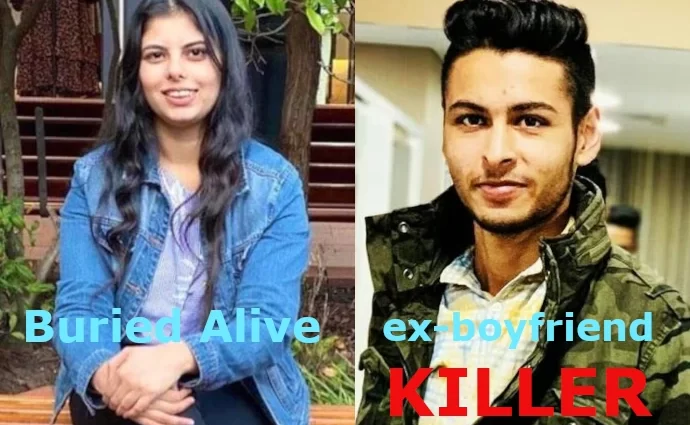In an act of uniquely uncommon level of cruelty, the disgruntled, jealous and angry ex-boyfriend Tarikjot Singh abducted Jasmeen Kaur from work and killed her by burying alive in a shallow grave, the Supreme Court of South Australia has heard.
The 21-year-old Indian nursing student Jasmeen Kaur was abducted on March 5 2021, by Tarikjot Singh and driven nearly 650 km to state’s remote Flinders Ranges in South Australia where he buried her while she was still alive, with her feet and hands bound with cable ties. He also gave her some shallow cuts perhaps to intensify her suffering while she struggled to breathing her last breath swallowing in soil.
To no avail, Jasmeen had reported him to the police a month prior to her kidnapping.
It has been reported that Tarikjot used his flat mate’s car to carry out the crime.
In what would have been very cruel and intense suffering for her last 24 hours, Jasmeen died at some point on March 6.
Once Tarikjot was under the police scanner, he initially claimed Jasmeen had committed suicide. But once the legal noose tightened on him, he pleaded guilty to the murder.
The abhorrent and most horrific details of his crime have come to light from the sentencing submissions made to the South Australian Supreme Court.
Prosecutor Carmen Matteo submitted that the murder was “not efficient” and Jasmeen was “made to suffer”.
Also read: Hament Dhanji becomes the Supreme Court of New South Wales Judge
“She had to have been consciously suffering what could only be described as the absolute terror of breathing in and swallowing soil and dying in that way,” Matteo said.
Jasmeen’s family, including her mother, was in the court to hear the sentencing submissions.
It was submitted that Tarikjot planned the killing because he was unable to get over the breakdown of their relationship.
The way in which Jasmeen was killed involved, really, “an uncommon level of cruelty,” Prosecutor Matteo submitted.
“It’s not known when her throat was cut, it’s not known when or how she got into or was placed into that burial grave, and it’s not known when that was dug, other than the prosecution says it had to have been while she was still alive and in preparation for her burial.
“[It was] a killing that was committed as an act of vengeance or as an act of revenge,” she said.
It was also submitted that Tarikjot had written several messages to Jasmeen in the lead-up to her death but he never sent them.
“Your bad luck that I am still alive, cheap, wait and watch, will get the answer, each and every single one will get the answer,” one message said.
Once he pleaded guilty, he took police officers to the place where he had buried her. There the police found Jasmeen’s shoes, glasses, and work name badge in a bin, alongside looped cable ties.
Tarikjot was caught on CCTV hours before the murder at a Bunnings in Mile End buying gloves, cable ties, and a shovel.
The court will sentence Tarikjot next month for killing Jasmeen Kaur.
He faces a mandatory life behind bars, with a sizeable non-parole period.
Crime of Passion
His lawyers want the court to consider his early plea and treat this case as a “crime of passion”. The plea of crime of passion will come in handy if the court accepts the argument that Tarikjot killed Jasmeen because he could not accept the breakup of their relationship; he could not deal with it and failed to move on the Jasmeen had.
In Australia, as in other common law jurisdictions, crimes of passion have traditionally been subjected to the partial defense of provocation, which converts what would have been murder into manslaughter.
This defence is used to mitigate the element of mens rea (state of mind before and at the time of commission of crime) by suggesting that the crime was committed in the “heat of passion” not as a result of planning and considered forethought to kill.
Stay tuned.
Similar Posts by The Author:
- Australian Muslims call for transparency and accountability of Law Enforcement Action
- India and the United States Spearhead Global Disaster Resilience Efforts through CDRI
- A big win for Nurul Khan in his bid to unmask Victorian ‘Labor dirt sheet plotters’
- Problems of Arvind Kejriwal lie in the Charge-sheet against Manish Sisodia
- ABC Ram Temple coverage: ABC Ombudsman’s “No Bias” report – a slap on the face of Australian Hindus

